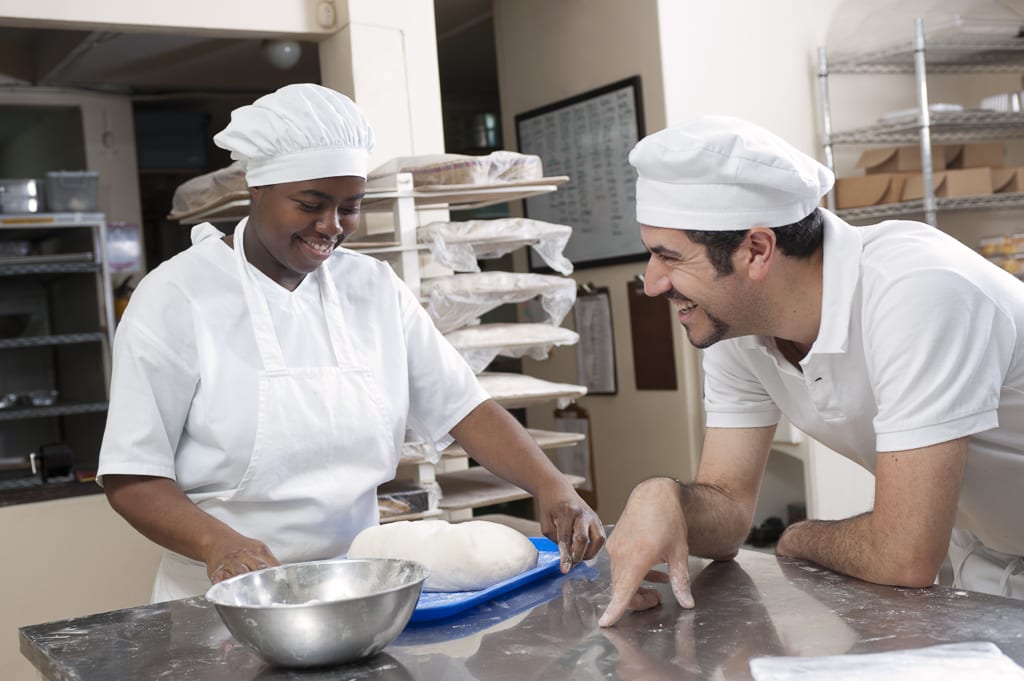Beyond the Kitchen: The Essential Skills Learned in Culinary School
Those who pursue a culinary career often envision the dynamic atmosphere of a bustling kitchen, the heat of the ovens, and the fragrance of fresh ingredients coming together in harmony. However, culinary schools imparts much more than the ability to conjure up delectable dishes. Culinary programs often emphasize the importance of continuous learning and adaptability. Trends in the culinary world evolve rapidly, making it crucial for industry professionals to stay informed and adaptable to new methods, tastes, and dietary considerations. Let’s delve deeper into the specific skills that culinary students gain and how they apply to a multitude of scenarios inside and outside the kitchen
Mastering Time Management and Multitasking in a Fast-Paced Environment

Efficiency is the beating heart of a professional kitchen. Culinary students quickly learn that a chef’s ability to produce high-quality food hinges on effective time management. Amidst the sizzle and chop, they must prioritize tasks, often preparing several meal components simultaneously. The clock is an ever-present arbiter of success, and managing it well separates the novice from the seasoned professional.
Through vigorous training, students develop the capability to focus on multiple tasks without sacrificing attention to detail. This skill is particularly crucial during peak hours when orders flow in waves and one misstep can ripple through the entire service. Multitasking in these conditions becomes second nature, fostering a sense of calm and control despite the chaos.
Additionally, this enduring focus on time management and multitasking instills valuable life skills. Culinary graduates often find these attributes benefit them in everyday scenarios, from juggling household chores to maintaining balance in their personal and professional lives. It’s a skill set that, once mastered, serves one in countless ways.
The Art of Flavor Balancing and Sensory Evaluation

To delight the palate is the ultimate goal of any chef, and achieving this is no small feat. Students in culinary schools delve into the complex world of flavors, learning the subtle dance of balancing herbs, spices, acids, and bases. This intricate understanding of taste is not merely about following recipes; it’s an intuition developed over time through trial and error, taste, and adjustment.
In addition to flavor, culinary education places a heavy emphasis on texture, aroma, and appearance, as all of these elements contribute to the overall dining experience. Students train their palates and hone their sensory evaluation skills to discern the success of their culinary creations. It’s a form of artistry and science, where precision is as important as creativity.
The curriculum often includes the study of global cuisines, providing students with a diverse palate and an appreciation for cultural specificity in flavor profiles. They learn not only how to replicate traditional dishes but also how to incorporate elements from different cuisines into innovative new creations. This fosters a global perspective and adaptability in their culinary repertoire.
Moreover, the ability to evaluate food extends to other areas of life, from making better personal dietary choices to critiquing the broader aspects of consumer goods on sensory levels. The appreciation for nuance and quality gained through culinary training enriches the ability to savor life’s many flavors, both literal and metaphoric.
Leadership and Teamwork: The Recipe for a Successful Kitchen Brigade
The hierarchical structure of the kitchen brigade system is a classical approach to organizing a kitchen, and it’s a core principle taught in culinary schools. Through this system, students learn the importance of leadership and the interdependence of roles within a team. They experience firsthand how a head chef’s guidance can inspire the entire kitchen staff to work harmoniously towards a common, delicious goal.
Leadership skills carved out in the heat of the kitchen include delegation, motivation, and conflict resolution. Students learn to lead by example and understand the delicate balance between commanding authority and fostering a supportive environment. These skills are critical not only for the smooth running of a kitchen but also for any group dynamic where leadership and collaboration are key.
However, leadership is not just about being at the top; it’s also about being a reliable team player. Students are taught to value every role in the kitchen, recognizing that the success of the whole is built upon the contributions of each individual. They learn to communicate effectively, resolve issues constructively, and support their colleagues, forming a cohesive and high-functioning team.
The lessons learned in culinary school encompass a myriad of skills that transcend the boundaries of the kitchen. Graduates emerge not only as skilled chefs but also as well-rounded individuals apt for various challenges, both culinary and beyond. The fusion of creativity with practical skills makes culinary education a formative experience that shapes aspirant chefs into adept professionals in any field they choose to explore.






